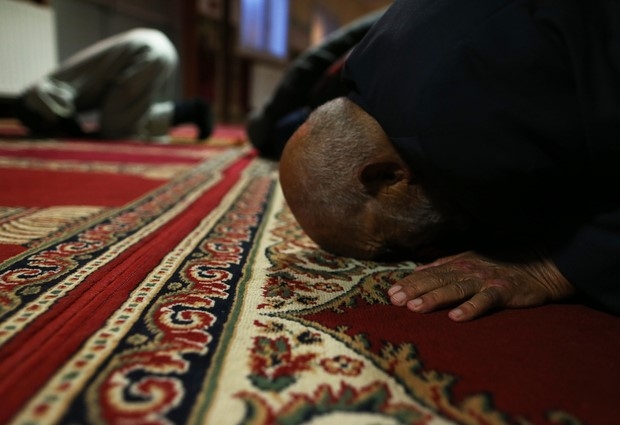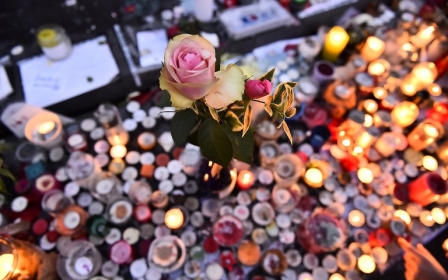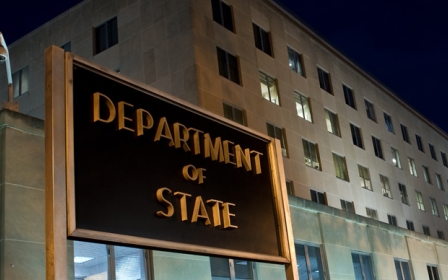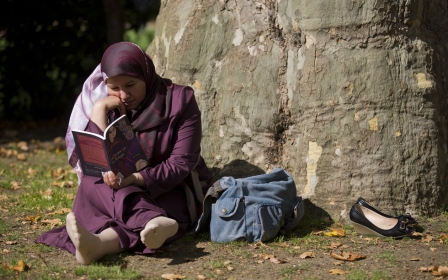After shock, Muslims in France speak up and seek unity

PARIS – After the attacks against Charlie Hebdo last January, the slogan "I am Charlie" led to some debate amongst the Muslim community of France. Some condemned the attacks but refused to identify themselves with a newspaper whose editorial and ideological line did not match their beliefs. However, it was necessary, and even compulsory to take a stance.
Since the killings undertaken by Mohamed Merah in Toulouse and Montauban in March 2012, the need to take a stance and to condemn terrorist attacks, and even to explain that "this has nothing to do with our religion," is frequently debated in public and within the Muslim community. This injunction, often led by media and political pressure, is based on the principle that Muslims should "distance" themselves from the vision of Islam as perceived by those who perpetrate attacks. However, for many, taking such a disassociation is clear and goes without saying.
After the attacks in Paris on 13 November, the debate seems to have altered. Muslims did not expect retaliation from extremists nor the political injunctions to take a stance. Between the fear of the forthcoming regional elections in France and the willingness to react, a change is visible. Some imams have come out, young Muslims have spoken and the need for a different form of representation than that often portrayed in the media becomes necessary.
A fear of retaliation
The day immediately after the attacks on Friday, 13 November 2015, reports of attacks on people of Muslim confession or deemed as "Arab" due to their physical appearance were notified to the CCIF (Group Combating Islamophobia in France), which noted 24 reports between 14 and 19 November.
"It is fewer than after Charlie Hebdo - we reported 75 the week after the attacks - but it is more serious as people are scared to report this knowing that the government is not behind them. This is clear in the many searches [793] and house arrests [164] affecting a population mostly Muslim," notes Yasser Louati, spokesman for the CCIF, in a telephone interview with MEE.
These Islamophobic reactions affect daily life, as Noura Guenif - a young advertising professional aged 26 who witnessed this several days after the attacks - testifies. In a supermarket, Noura was confronted with a lady who shouted: "You piss me off, go back to your own country!"
At Saint-Denis, on Thursday, 19 November, whilst a raid was taking place against the building where individuals suspected of involvement in the Paris attacks were hiding, residents came together nearby.
A young Muslim, Lyes, stated: "I walked out to see what was happening early this morning. The gun shots were ringing out, it was dark and the area was locked down. I saw a lot of police everywhere and told myself that with my Arab appearance, I'd be better off going home." Lyes told his story with an ironic smile. Between mosques which have been vandalised and Islamophobic attacks, his fear would appear to be justified after the attacks.
The forthcoming elections
For Yasser Louati, the change between the January attacks and those in November lies in the lack of support from the government towards Muslims. "After the January attacks, the government called out not to mix up the attacks with the Muslim community. Today, official positions are focusing more on declarations of war against ISIS and nothing is said about Muslims in France. And as a result, many are scared that this situation - which is of course for electoral gain, with the forthcoming regional elections - will have repercussions for Muslims."
This interpretation in light of the elections is one which is shared by Nebil Ennasri, president of the Collectif des Musulmans de France [Muslims in France Association]. On the day of the raid in Saint-Denis, where he lives, he already expressed his fears to MEE: "Yesterday the mosque in Aubervilliers was searched and left in a terrible state; before that it was the mosque in Gennevilliers. Where will it stop?"
For Nassurddine Haidari, a former imam and professor in a religious association in Marseilles, it is not the rise of the National Front which scares him the most, but the measures announced by the government in response to the attacks. "Muslims are used to the discourse of Marine Le Pen and are more fearful about being betrayed by the left and right wing. If the left wing should instil some sort of ghettoisation, which is already a source of radicalisation, it will be a real problem," he stated to MEE.
But behind the fear, there is also a latent awareness. For Nassurddine Haidiri, Muslims should not simply wash their hands of the issue of terrorism, but take their responsibilities and come together within their community.
"We cannot define an Islam in France in harmony with the republic, between certain imams who come from abroad and are so out of touch with the situation and French culture, and the fractures within the community itself. Young people do not have much of a voice at all, for instance."
Some young Muslims have, however, tried to take things into their own hands, without waiting for any help from the state or increased representation.
A new form of mobilisation
For several days, a hashtag has been doing the rounds online: #perquisitionnezmoi [#searchme], a sort of ironic retort against the endless number of police searches which have been done in local organisations and even a halal restaurant. Even the spokesman of CCIF amusedly tweeted the hashtag, notifying the authorities where to find the "loukoums" if they came to search his home. "Since there is a lot of abuse, we might as well make some fun of it," he stated to MEE.
Others, such as Moussa Ben Yacoub, one of the members of the Muslim Humanitarian Association Baraka City, have been taking to the internet for a long time.
The association, which has been under the spotlight of the authorities for over a year, uses social networks as a means of communication, but also to raise funds. It notably published details about the police search at the home of one of its former members as well as that in the halal restaurant Pepper Grill. "The attacks had a role to play insofar as any political reaction has become disproportionate. However, we have a network and, now, a community behind us," he told MEE.
In addition to the frequency of searches which are considered, for some, as abusive, other people have opted to speak out against terrorism in videos, without waiting to be invited onto TV shows. This is the case of the Muslim Student Group in France (EMF) whose video, which used the slogan of the association Coexister, #noussommesunis [#weareunited], has been viewed over 400,000 times on YouTube since being posted online last Sunday.
"Of course, we have received racist comments but we prefer to reiterate the message of a professor in the US who showed the video to his students; they were all moved."
The initiative was spontaneous, he indicates, and it came from a general request from over 500 young Muslims who wanted to speak out. Between humour, denunciation and solidarity, young people have not hesitated to speak out outside of the traditional channels.
Union and education
There remains a need for a wider union amidst a population of over 4 million Muslims in France in order to respond to the situation after the 13 November attacks and the issue of radicalisation. Ousmane Timera, professor of Islamology in Orleans, tried to take action along with others: "After the attacks, comes anger, and many Muslims wanted to organise a march, but there is still the problem of seeking a unanimous voice amongst us. This is the continuous debate."
In Montreuil, the Imam Abdelkader Ounissi has opted for a more peaceful channel. Despite the risks, he went to Friday prayers at the Palais des Congres in Montreuil bringing together worshippers from the five mosques in the area, but also a rabbi and a priest. The day before, he prepared his prayer on a sheet of paper on which was written, in his own hand: "I have noted that through all of the trials, Muslims are increasingly identifying themselves with France and they should be treated as legitimate children of the Republic."
The next day, he proclaimed this message in front of 300 worshipers. One of them, when leaving, stated that he had come despite the fear of a further attack, as "it is important to show we are united".
Whilst the prime minister Manuel Valls called for the removal of radical imams and the closure of mosques which "fail to respect the values of the republic," Nassurdine Haidari explained that there is a step to be made after unity, that of support.
"Islam is not a case of pot luck, you can't enter Islam in any old manner and do what you want. We need to stop focusing on mosques and more on religious education which should be undertaken from a young age, in harmony with French education, and this would perhaps be an initial step towards finding a solution," he concluded.
This article was translated from French (original) by STiiL.
New MEE newsletter: Jerusalem Dispatch
Sign up to get the latest insights and analysis on Israel-Palestine, alongside Turkey Unpacked and other MEE newsletters
Middle East Eye delivers independent and unrivalled coverage and analysis of the Middle East, North Africa and beyond. To learn more about republishing this content and the associated fees, please fill out this form. More about MEE can be found here.




